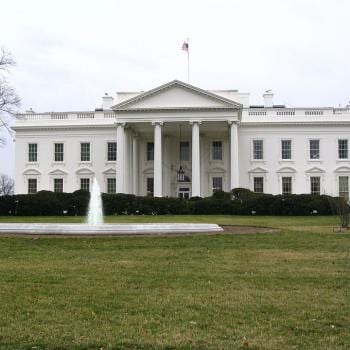I know I’ve been over this point many times before, but it’s an important one. According to reports, the USCCB draft voting guide (which I discussed last week) will list a specific number of intrinsically evil acts, that cannot be justified by appeal to intent or consequence. These are: abortion, euthanasia, human cloning, embryonic stem-cell research, racism, torture, genocide, and the targeting of noncombatants in acts of terror or war. Now, the standard Catholic argument for voting Republican centers on the abortion issue, in its intrinsically evil (or non-negotiable) nature. The non-negotiability of abortion extends to the act of voting too, so voting for a pro-abortion candidate can never be justified. In previous posts, I tried to show that this line of reasoning was flawed, but let’s assume, for present purposes, that it is true. Where does that leave us?
In other words, let us assume that a Catholic cannot vote for any candidate who supports an intrinsically evil act. You can see where I am going here, based on the above list. Between all candidates on both sides and their position on each of the issues (especially abortion and torture), it pretty much leaves Ron Paul, and possibly John McCain. We all know where the Democrats stand, in zombie-like fashion, on abortion. We also know that the leading Republicans support torture. The positions of Giuliani and Romney were clear to me, but it seems that newcomer Thompson shares their stance, declaring that “you have to do what is necessary to get the information that you need”.
What about the position that since abortion is worse than torture, it is still justifiable to vote for one of these Republicans, as the “lesser of two evils”. Well, no. The problem is by assuming that certain positions are non-negotiable even from the point of view of voting, you are backing yourself against a wall. Making such a moral judgement– choosing the lesser of two intrinsically evil acts– is an exercise in proportionalism, a mode of reasoning condemned explicitly by the Church, most forcefully in Veritatis Splendour. You are directly choosing one form of evil to avoid a greater evil, and you can’t do that. Zippy has been making this point for a long time now — he argues that modern democracy “is a vast training ground for generations of proportionalists and consequentialists: a ritualistic reinforcement of modernist moral relativism practiced on a vast scale, wherein choosing the lesser of multiple evils is viewed as a social duty.”
It seems we have two conclusions. One, accept there are certain non-negotiables when it comes to voting and avoid proportionalism. That inevitably would lead Catholics to separate themselves from the political process, especially since it is difficult (if not impossible) to restrict the number of non-negotiables to some arbitrary number. Second, accept that the act of voting itself is not choosing evil, if you do not share the intent of the person you vote for when it comes to the particular non-negotiable in question. I certainly favor the second option, given that we are called to participate in public life. But where does that leave us as moral agents?











